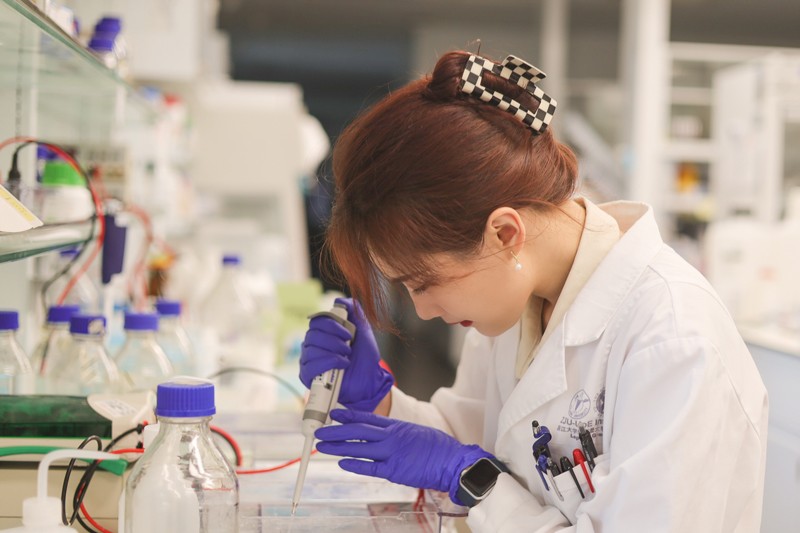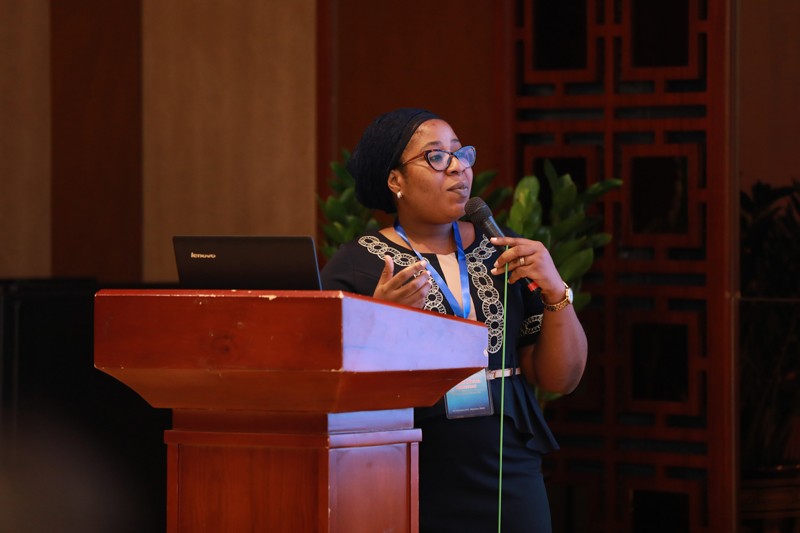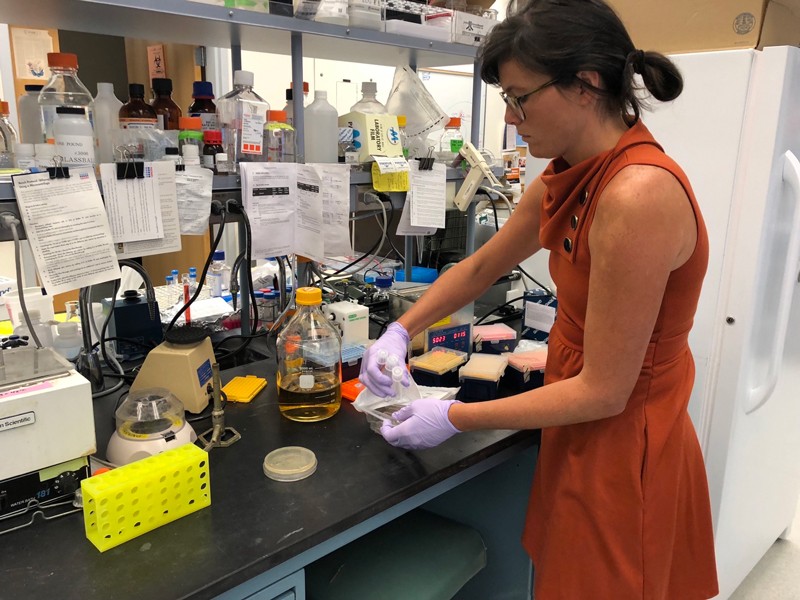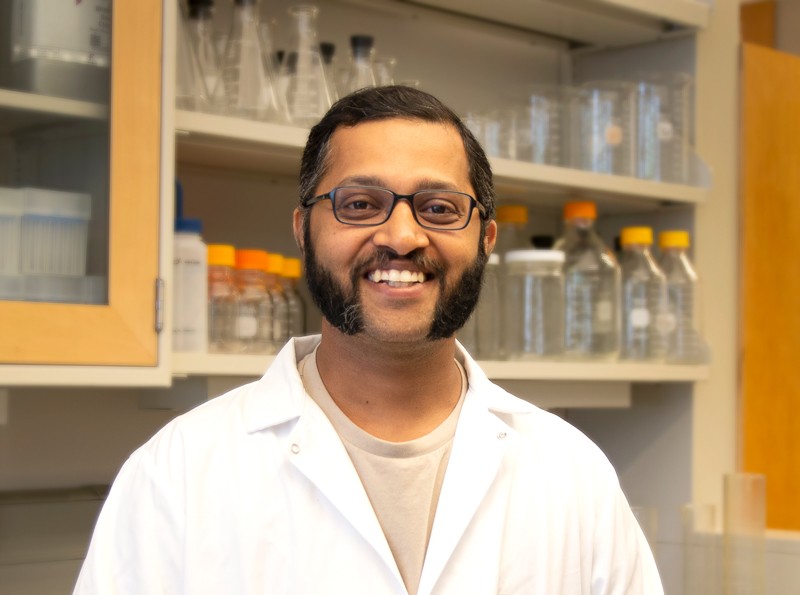How to bounce back from a PhD-project failure
- Get link
- X
- Other Apps
- CAREER FEATURE
How to bounce back from a PhD-project failure
- Nikki Forrester
Failure is an integral part of science. Research projects get scooped, protocols prove unsuccessful or funding limitations restrict data collection, delaying progress and sending scientists back to the drawing board. These setbacks plague researchers of all career stages, but they can feel particularly acute for PhD candidates who are racing against time to earn their degrees. Nature talked to five scientists about the hurdles they faced in their PhD research, how they successfully switched projects midway through and what advice they have for others in a similar situation.
FRANCINAH RATSOMA: Go with what actually works
Microbiology PhD student at the University of Pretoria in South Africa.
I study the relationship between pine trees and their fungal pathogen, Fusarium circinatum. Pine is an economically important plant, but it’s susceptible to the fungus, which reduces timber yields by causing disease.
My first interest was in understanding which proteins or nucleic acids pine plants carry in their extracellular vesicles — nanoparticles that exchange components between cells — that make them susceptible or resistant to the fungus. But I had trouble isolating the vesicles from the roots and the hard pine needles. The available protocols used model plants with very soft leaves. Also, the plants I needed weren’t readily available. When pine seedlings I ordered arrived months later, they were sometimes already contaminated with the fungus.
Waiting for fresh plants and troubleshooting extraction protocols was taking a lot of time. My excitement and optimism about the project started to wane. In 2021, six months into my PhD, I realized I needed a plan B.
I decided that I wouldn’t take my failures personally because, after all, hurdles happen in science. I meet with my supervisor nearly every week, so he could see that my project had stalled. He suggested that we focus on the fungus side of the interaction instead because the fungal strains were readily available, and I could isolate their vesicles in the lab.
It wasn’t easy to switch mentally because I had a lot of interest in the pine part of my work. But sometimes you have to sacrifice your interests and go with what actually works in a PhD. With just three years in which to finish my programme, I had to look on the bright side of changing my approach. I’m learning new techniques and gaining skills.
It’s also important to check on your mental health: it can decline very quickly during a PhD, especially when your project isn’t going how you anticipated. My advice is to get adequate sleep, eat well, exercise if you have the time, talk to your colleagues and see your university mental-health-care provider as much as you need to get support.

Yuan Dailin found that microbiology was a better fit for her goals than cell biology.Credit: Chen Jingyuan
YUAN DAILIN: Advocate for the PhD experience you want
Microbiology PhD student at Zhejiang University–University of Edinburgh Institute in Haining, China.
When I started my PhD in September 2020 in a cell-biology lab, I had trouble handling cells, doing live cell imaging and collecting data. I’m not a particularly detail-oriented person, so doing delicate experiments was challenging for me. I talked to my supervisor several times, and after a month of failed experiments, she suggested I reconsider my choice of research field.
My supervisor knew that I wanted to pursue a career in industry. She said that if my main goal was to earn a PhD, then I could transfer to another lab in a field that would better suit my skills and career interests.
At first, I was shocked. It sounded as if she wanted to get rid of me because I couldn’t get positive data. But after thinking it over and talking to other professors and graduate students, I realized that cell biology wasn’t the right fit for me.
So, I searched the university website to find faculty members who were doing interesting research, and I talked to their current graduate students about their experiences. Then, I met with those faculty members and let them know what skills I could bring to their lab. I also said that I wanted to pursue a career in industry, where I could have a well-paying job that suited my outgoing personality. Eventually I met with a new group leader, Sebastian Leptihn, along with the graduate-programme director and my original supervisor; we all agreed that it would be good for me to move to Sebastian’s lab in January 2022, one-and-a-half years into my PhD programme.
There, I studied microbiology, specifically the genetics of a bacteriophage (or phage, for short) that infects Klebsiella pneumoniae, a bacterium that can cause health problems in humans. Phages are viruses and have genomes that are usually highly compressed, but the one I am studying has a genome containing non-coding regions, which is something of an abnormality. Understanding the functions of these non-coding regions could help researchers to use phages to treat bacterial diseases.
It’s worth taking the time to evaluate whether your research is fulfilling and whether your personality fits the lab group’s culture. If you’re having doubts and think you might be happier and more productive in another lab, bring the issue up as soon as possible. Talk to your supervisor, administrators, deans and other graduate students who can help you to make the transition smoothly. Even if some supervisors aren’t thrilled about the prospect of a graduate student leaving, you can still stand up for yourself and the PhD experience you want.

To get advice about a new project, Olusola Ashiru reached out to colleagues from her lab and at conferences.Credit: INCISE
OLUSOLA ASHIRU: Spend time away from your research
Marine geologist and lecturer at the Federal University of Technology Akure in Nigeria.
When I applied to do a PhD with the person who would become my supervisor at the Institute of Deep-Sea Science and Engineering in Sanya, China, I told him I wanted to study the Aje basin, a newly discovered undersea oilfield off the coast of Nigeria. I planned to use fossils to date sedimentary rocks in the basin and so infer both the basin’s potential for oil and gas generation and its palaeoenvironmental conditions.
Nigeria is my home country, so I thought I could get seismic data, detailed records and core samples from wells in the study area that are owned by oil companies. But after I started my PhD in November 2017, I found I couldn’t access the companies’ data for the Aje basin.
Almost everything about my project had to change. I felt lost and I panicked about having to start again. Fortunately, a postdoctoral student in my lab had a similar research project that focused on a region of the Atlantic Ocean off the coast of Brazil. He sent me papers to read and helped me to develop the idea of using seismic data to map the ocean floor in the Bonga oilfield, another region off the coast of Nigeria. Although I was still interested in hydrocarbon generation and the palaeoenvironment, there were already many publications on these topics for Bonga. Instead, I would study sediment distribution on the slope as controlled by tectonics, which tells us how this undersea landscaped formed.
I also reached out to other researchers for guidance. I’m a shy person, so I didn’t always approach people directly at conferences. But I took down their names and e-mailed them afterwards to say that I enjoyed their presentations and ask whether they would help me to conduct similar studies. Their support was encouraging — many were willing to read my manuscripts, provide feedback and make corrections even though we had never met before.
Because I was disappointed about my first project falling through, I applied myself and spent many hours in the lab, tackling the challenges that arose with my second project. I have a son and two daughters who stayed with their grandmother in Nigeria while I was in China. Many times, I asked myself, “did you leave them behind just so you could come here and fail?” That motivated me to keep going.
In January 2020, I visited Nigeria and was then unable to return to China because of the pandemic lockdown. I completed my PhD in November 2021 and in January I resumed a lecturer appointment with the Federal University of Technology Akure in Nigeria.
When I felt discouraged during my PhD, I would walk along the coast of the South China Sea near my institute, do yoga or go out to dinner with friends and colleagues. I also took three weeks of vacation every year. Sometimes you need to give yourself a break, so you can come back to your work refreshed.

Even though her PhD project took longer, it was worth it for the skills and confidence gained, says Kathleen Beeson.Credit: Spencer Masterson
KATHLEEN BEESON: Don’t get ‘summit fever’
Neuroscientist and research fellow at Harvard Medical School in Boston, Massachusetts.
In my PhD work at Oregon Health & Science University in Portland, I studied a molecule that is important for inducing the formation of synapses between neurons. I planned to test chimaeras of the molecule in the laboratory to see how they function in mice. But in 2017, during my third year, it became apparent that the data I was collecting had too much variability. I couldn’t move forwards.
Besides my principal investigator, I had a senior mentor who planted a seed: that I should consider other ways to answer my research questions, even if it meant forsaking what I had already done in the three years of trying to get my approach to work. That was daunting.
I thought about the idea of summit fever, a mountaineering term that describes the obsessive drive to follow one path to complete a task, instead of taking a moment to reassess your approach. I decided to try my experiment once more. If it didn’t work, then I would switch my approach. It didn’t work.
Towards the end of my third year, I identified a fresh route that involved testing a different form of the molecule using a genetic-knockout mouse model. I was charting new territory in a region of the brain that was completely different from the one my lab specialized in.
Looking back, I’m so glad I switched projects. I became the cerebellum expert in the lab, and I gained a lot of independence because I was taking the lab’s research in a new direction. I learnt how to solve problems on my own rather than relying on my adviser’s experience. I reached out to principal investigators at other institutions to ask questions about their published methods.
By the end of my PhD, I had a good handle on my new field and even taught my adviser techniques so that his other graduate students could carry on similar projects. Although it took me seven years to finish my PhD, I gained so much in personal growth and confidence. I published several papers and secured a good postdoc position in a fresh research area. I knew I could train myself, learn new things and ask good questions.
If you want to stay in academic research, don’t be in a hurry to be the first one to finish your graduate programme. I was one of the last students in my cohort to graduate, but I decided to stop comparing myself with others. If you’re in a rut and struggling with data that are not satisfactory for whatever reason, talk to your mentors and find a way to alter the situation. I am proud of my decision to change course: it was hard, but it was the right choice.

After getting scooped twice, Vikas Navratna diversified his PhD project’s back-up plans.Credit: Rajani Arora, Univ. Michigan Life Sciences Inst.
VIKAS NAVRATNA: Getting scooped is not your fault
Biochemist and research investigator at the University of Michigan in Ann Arbor.
My first PhD project at the Indian Institute of Science in Bangalore was focused on solving the X-ray crystal structure of a penicillin-binding protein in the pathogenic bacterium Staphylococcus aureus. This was to understand how the protein safeguards the bacteria from antibiotics.
But in my second year, a paper was published detailing the full structure of the protein. Although some journals offer ‘scoop protection’, meaning that they can still publish your results even though a recent paper has covered the same ground, I was too far behind in my research to take advantage of these policies.
My initial reaction to being scooped was disappointment and self-blame for working too slowly. But when I saw how many authors were on the paper that had scooped me, and thought about all the resources they had, I realized that it wasn’t a fair comparison. That helped me to get over the feeling that it was my fault.
After talking to my adviser, I decided to focus on a specific DNA-binding protein in Bacillus subtilis, a bacterium that can bind and incorporate DNA from the surrounding environment. This capability allows some bacteria to adapt to new conditions, acquire drug resistance and perhaps even communicate with other organisms. During my third and fourth years, I was able to crystallize the protein, but then two more papers were published on the DNA-binding domain of this protein. My back-up plan also got scooped.
When that happened, I worried about being kicked out of my programme, but my adviser reassured me that he wanted me in the lab. So, I switched gears again, to focus on the lysine biosynthesis pathway enzymes of S. aureus. These enzymes are attractive potential targets for antibacterial drugs.
For the last two years of my PhD, I worked on the structures of six proteins to increase my chances of success and graduate with more than one paper published. I wanted to have several backup plans. In the end, my thesis was a potpourri of the characterization of six proteins, but it was a rewarding experience.
Being scooped humbled me because I learnt that I wasn’t the only person capable of doing a particular project. It also showed me how common failure is in science. You have to be optimistic, but I’m aware now that experiments might not always work out.
Although it’s easy to blame yourself for getting scooped, it’s not your fault. There is often no way to know what other researchers are working on. Be kind to yourself and then see if there is anything salvageable from your project. Look out for questions that remain unanswered, then lick your wounds and start working on something new. Getting scooped is not the end of your career as a scientist.
Nature 607, 407-409 (2022)
doi: https://doi.org/10.1038/d41586-022-01900-Close
- Get link
- X
- Other Apps




Comments
Post a Comment